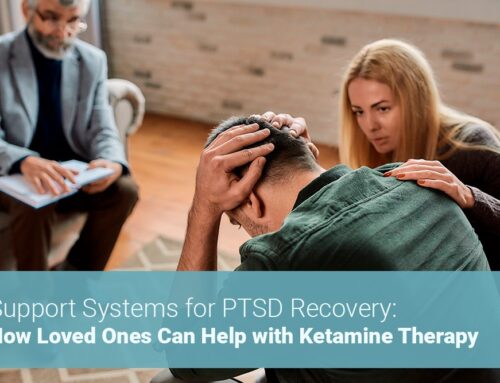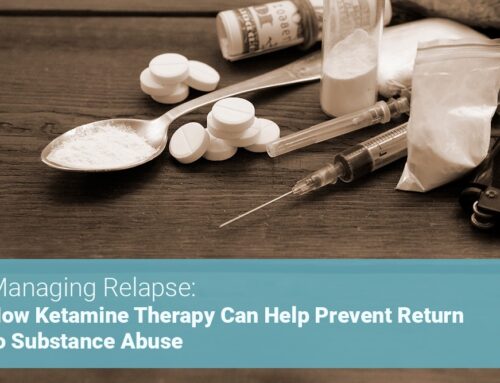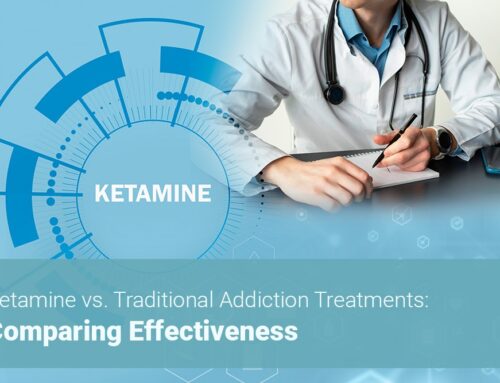Persistent depression casts a long and painful shadow. More like a desert than a mountain, symptoms lasting for years can be impossible to traverse. Until now, managing the never-ending darkness has been challenging at best without only limited treatment options. But today is a new day for people struggling with unrelenting depressive disorders, beginning with ketamine therapy from Progressive Medical Solutions.
Understanding Depression
Sadness is a normal reaction to adversity. For example, a divorce or the death of a loved one can trigger temporary feelings of grief and despair.
Depression, however, is different. A multifactorial disorder, symptoms range from a nagging sense of emptiness to thoughts of self-harm lasting two or more weeks. And for a small percentage of those diagnosed with depression, symptoms become treatment-resistant, lingering for long periods despite ongoing therapy.
What causes depression isn’t clear, but it can affect anyone, regardless of age, gender, socioeconomic status, or background. Biological differences appear to make some people more vulnerable than others. Genetic factors also play a role, as well as stress and hormonal changes.
What is certain is the physical, emotional, and social impact long-lasting depression has on the lives of those in its grip. The effects include fatigue, chronic pain, cognitive changes, social isolation, and — for at least 5% of people diagnosed with depression — an increased risk of suicide.
What is Ketamine?
Ketamine is a dissociative anesthetic with analgesic and anti-inflammatory properties. Developed in the 1960s as an alternative to anesthesias with dangerous side effects, it’s still used worldwide in veterinary and human medicine today. In smaller doses, it’s captured researchers’ attention as a promising therapy for mental health and substance abuse disorders.
What Makes Ketamine for Depression Different Than Conventional Treatment?
Conventional medications for depression include:
- Selective serotonin reuptake inhibitors (SSRIs), such as sertraline
- Serotonin-noradrenaline reuptake inhibitors (SNRIs), including duloxetine and venlafaxine
- Tricyclic antidepressants, such as amitriptyline, also used to treat migraines
- And the less common monoamine oxidase inhibitors (MAOIs), including isocarboxazid and phenelzine
All of these drugs have only limited efficacy and one thing in common — they increase levels of serotonin and noradrenaline — powerful neurotransmitters associated with mood. Some are more effective than others for different patients. Still, they essentially work the same way.
Ketamine therapy targets different pathways, representing the first real innovation in depression treatment in decades.
Ketamine offers:
Fast, Sustained Relief
Oral antidepressants can take 6-12 weeks to work, but a single ketamine infusion can ease depression symptoms within hours and last for weeks. Patients with long-standing symptoms, including thoughts of self-harm, may experience relief in as little as two hours.
Treatment for Co-Occurring Disorders

Many people with major depressive disorder also battle other mental health conditions, such as anxiety, post-traumatic stress disorder (PTSD), and substance abuse disorders. Ketamine has the potential to treat all three and more.
Fewer Side Effects
Frontline depression treatments can cause serious side effects, such as sleep disturbances, sexual dysfunction, weight gain, and anxiety, leading many patients to abandon cures that seem worse than the problem they’re treating.
Ketamine has fewer side effects than conventional antidepressant drugs and is generally well-tolerated — even at the higher doses used for anesthesia.
How Does Ketamine Work?
Researchers have identified several mechanisms of action through which ketamine may relieve depression, including:
Blocking NMDA Receptors
Ketamine is known to block NMDA (N-methyl-D-aspartate) receptors in the brain, enhancing glutamate production and temporarily disrupting the abnormal neural circuits associated with depression.
Boosting Dopamine
Dopamine is a feel-good chemical that regulates pleasure and emotion. By preventing the brain from recycling excess dopamine, ketamine boosts levels in the bloodstream, which increases levels in brain tissue.
Promoting Synaptic Plasticity
Ketamine promotes rapid synaptic plasticity, helping the brain create new neural connections. This is thought to reverse the dysfunctional neural circuits related to depression, providing sustained relief.
Increasing BDNF Levels

Brain-derived neurotrophic factor (BDNF) supports the growth and survival of new nerve cells, supporting neuroplasticity. Ketamine increases the release of BDNF, contributing to its antidepressant effects.
Anti-Inflammatory Effects
Research suggests that inflammation may play a role in depression. The use of ketamine for depression treatment could reduce brain inflammation.
Who is Ketamine Therapy Ideal For?
Ketamine isn’t right for everyone. Studies suggest it’s safer than mainstream alternatives, but more research is needed to establish its long-term safety.
The use of ketamine for depression symptoms is, therefore, generally reserved for patients who’ve gotten no relief from two or more traditional treatments. And it could be a lifesaver for patients at risk of suicide.
Among depression patients hospitalized for suicidal ideation or a suicide attempt, 6% will eventually take their own lives without a new treatment option.
Where Can I Get Depression Treatment in Las Vegas?
Ketamine therapy can be hard to find because it’s not a frontline option yet. It’s not available in just any doctor’s office. If you’re seeking depression treatment in Las Vegas and surrounding areas, Progressive Medical Solutions is among the few providers offering ketamine therapy.
What Does Ketamine Therapy Involve?

Ketamine therapy requires as much diligence as any medical treatment. Potential patients are carefully screened during an initial consultation to ensure they’re appropriate candidates.
Infusions are by experienced healthcare professionals in a safe, medically controlled space. You’ll be closely monitored throughout your treatment and the recovery phase.
How Many Treatments Will I Need?
How long ketamine treatments last varies widely. Results were mixed among a slew of analyses, so treatment plans are adjusted on your response to each ketamine infusion. In one study, approximately 40% of participants experienced further improvement in depression symptoms with maintenance treatments. Together, you and your team will decide what’s right for you.
Final Thoughts
Deciding to try ketamine therapy can be difficult after so many disappointments. But it could be years before another option with as much potential comes along. In the meantime, life marches on as you watch from the sidelines, suffocated by sadness. Take the leap with Progressive Medical Solutions.








